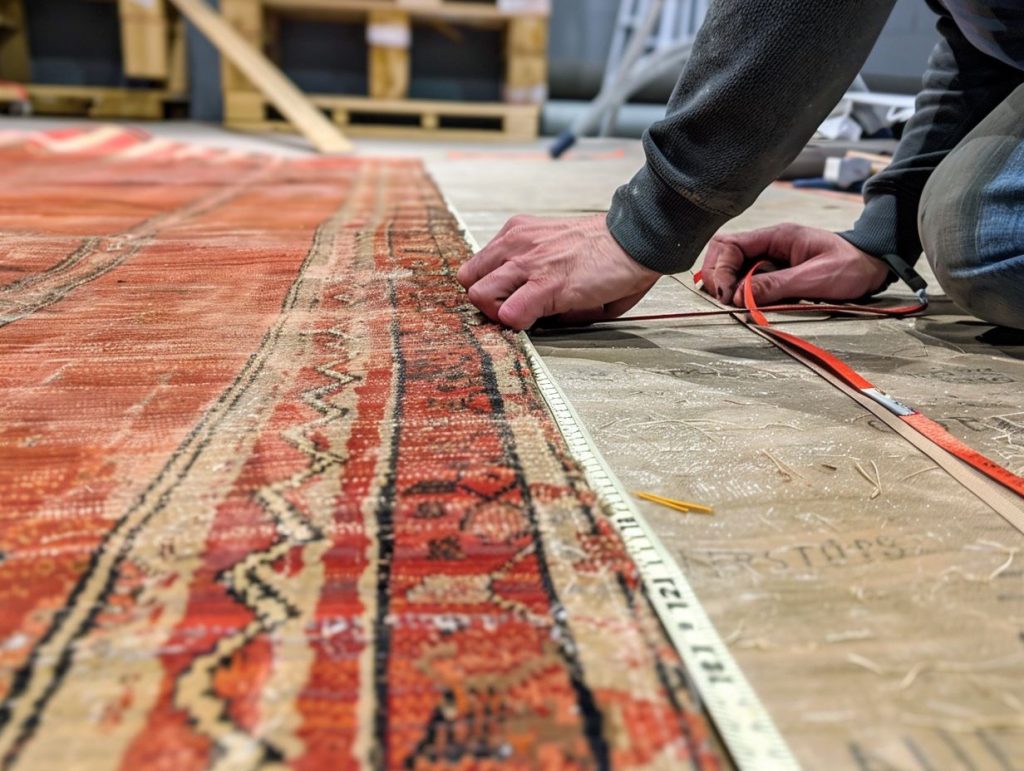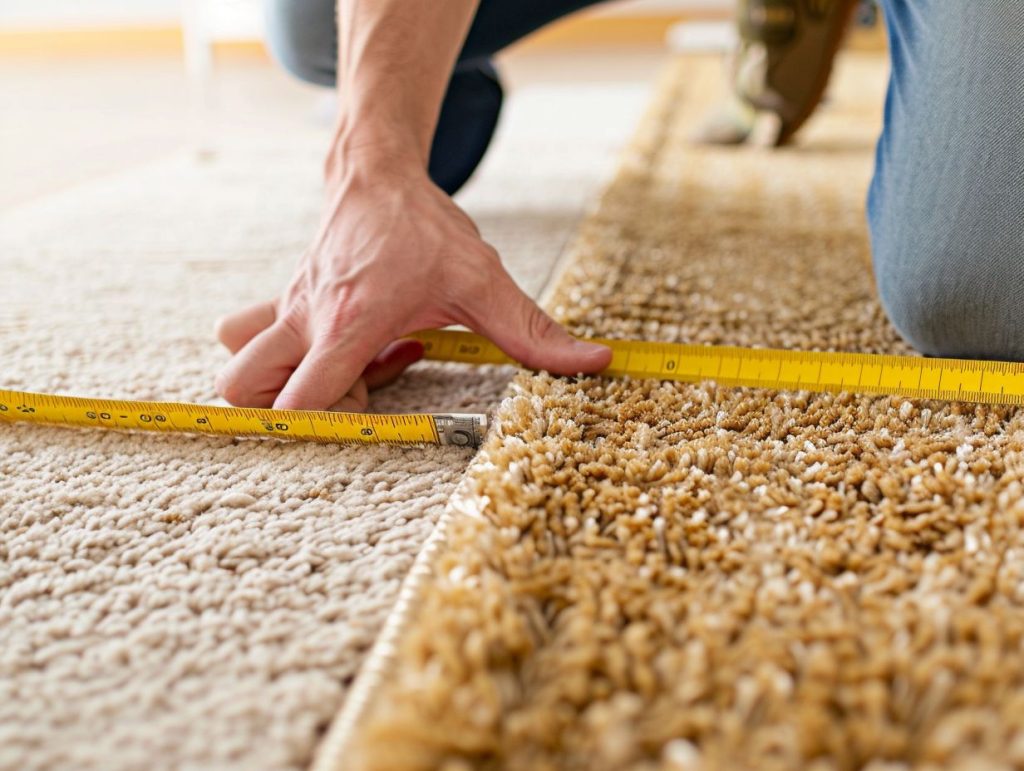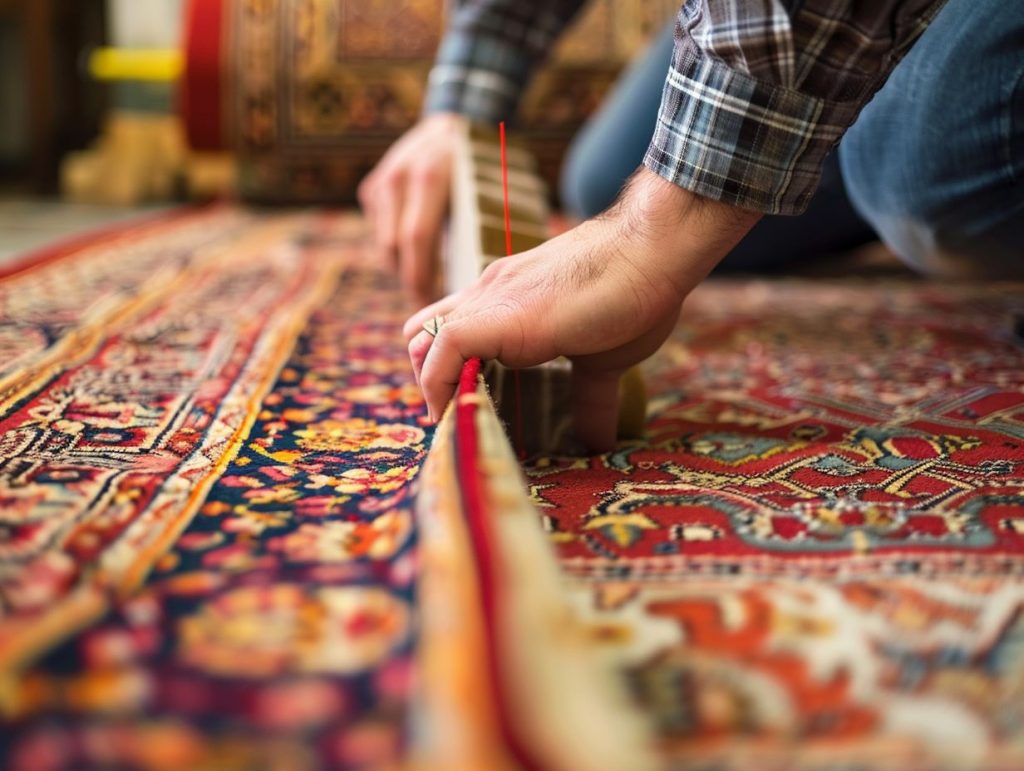Are you tired of sneezing, coughing, or feeling stuffy at home? Household allergens lurking in your carpets and upholstery could be the culprit.
This article explores the importance of reducing allergens in your living space, focusing on common household triggers and practical solutions. Regular carpet cleaning can effectively remove these irritants, and various methods exist for maintaining a clean environment. Hiring professionals for deeper cleaning can also be beneficial.
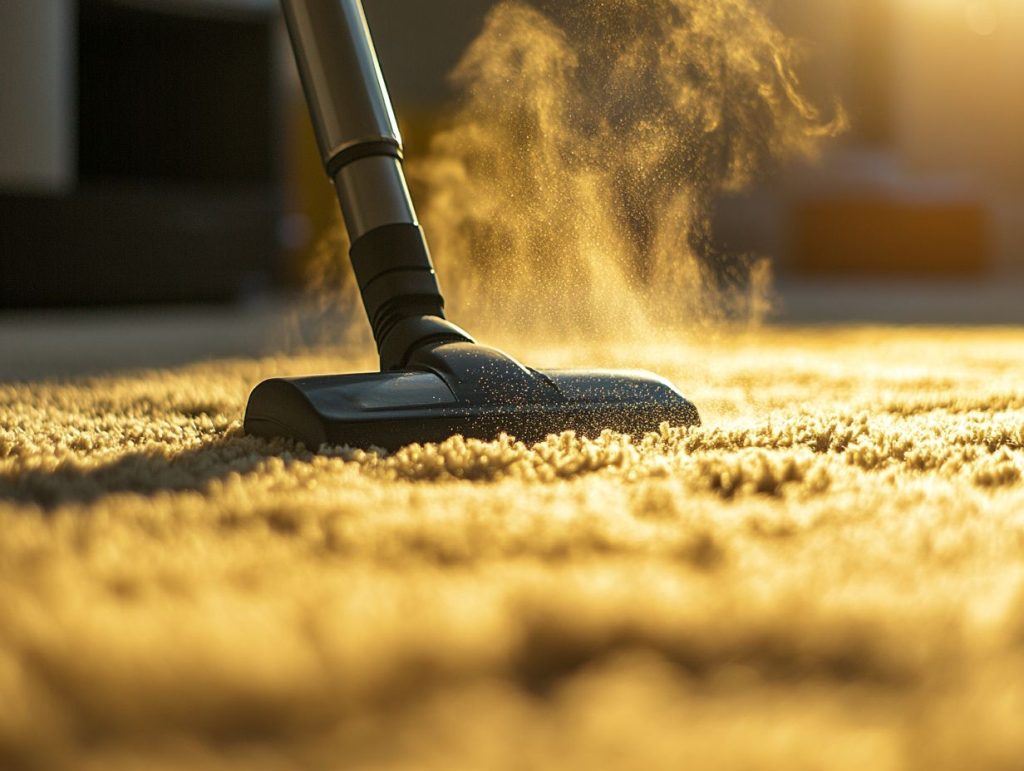
How To Reduce Household Allergens
Reducing household allergens is extremely important for keeping your home safe and healthy, especially if you or anyone in your family suffers from allergies or respiratory issues.
You know those annoying allergens like dust mites, mould spores, and pet dander? They can accumulate in your living space, affecting air quality and triggering allergy symptoms.
By implementing effective allergen reduction strategies, you’re not just enhancing your home’s hygiene but creating a cleaner space where everyone can thrive.
Understanding where these allergens originate from and taking proactive steps can provide significant health benefits for allergy sufferers and help create a more sanitised environment.
Understanding Common Allergens in the Home
In every home, you’ll find common allergens like dust mites, mould spores, pet dander, and surface dirt that can mess with indoor air quality and trigger those pesky allergy symptoms. Recognising these culprits is your first step towards creating a healthier living space. Dust mites love to hang out in your carpets and upholstery, while mould spores are often found thriving in damp areas. If you have furry friends, their dander can also build up, so it’s essential to tackle these irritants regularly.
These allergens don’t just make the air feel stuffy; they can also lead to some serious discomfort, causing sneezing, coughing, and other respiratory woes. Dust mites, microscopic little nuisances that snack on skin flakes, are common in bedding and textiles. Mould that unwelcome fungus often lurking in bathrooms or basements, releases spores into the air, making allergy symptoms worse. And let’s not forget about pet dander—tiny particles that love to cling to your fabrics and surfaces, creating challenges for those with sensitivities.
Regular cleaning is key to keeping these allergens at bay. Vacuuming with HEPA filters, using dehumidifiers in damp spots, and frequently washing your bedding help minimise exposure. Remember, maintaining cleanliness isn’t just about having a tidy home; it’s essential for creating a comfortable and healthy environment.
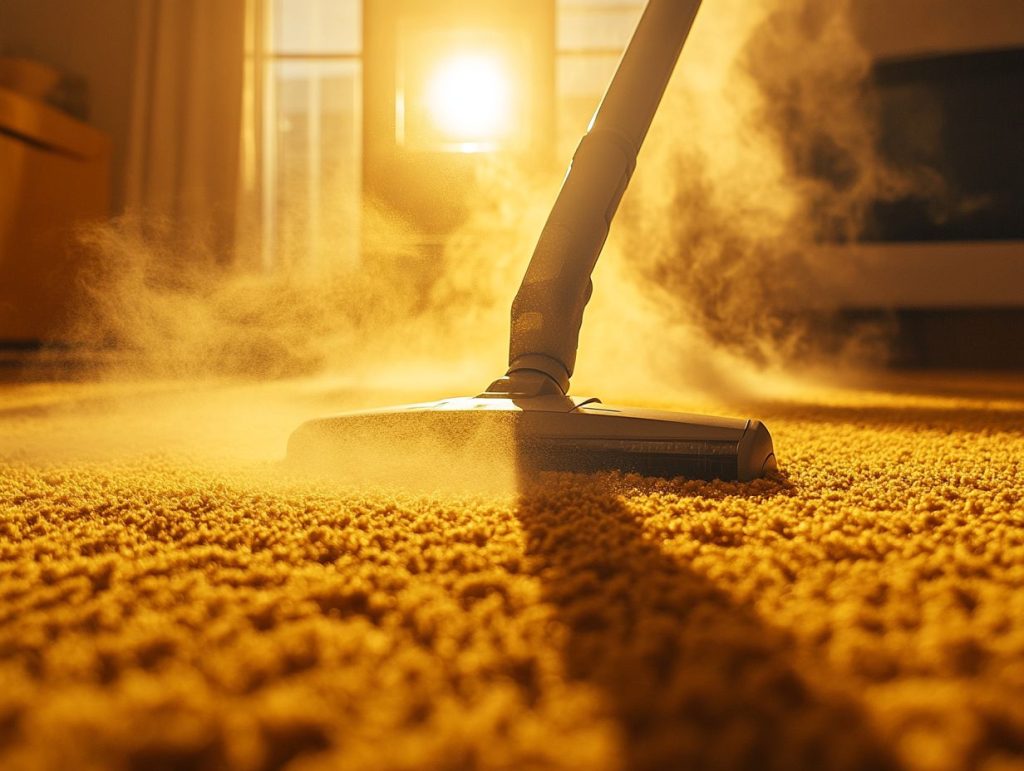
How Carpet Cleaning Can Help
Carpet cleaning is vital for reducing household allergens and enhancing indoor air quality. Regular methods such as vacuuming, steam cleaning, and deep-extraction cleaning help eliminate dust mites, mould spores, and pet dander trapped in carpets, significantly reducing allergen levels.
Many people do not realise how much carpet care can impact their health, but maintaining clean carpets can improve air circulation and assist allergy sufferers in breathing more easily. Establishing a cleaning schedule that suits your home environment will help keep those troublesome allergens at bay.
Methods of Removing Allergens from Carpets
Several effective methods, such as vacuuming, steam cleaning, and deep cleaning, can remove allergens from your carpets.
Using a variety of carpet cleaning approaches helps you get rid of dirt and makes your living space healthier. Regular vacuuming with a HEPA vacuum is essential for effectively capturing surface dirt and allergens.
Then there’s steam cleaning, which penetrates deep into carpet fibres, sanitising and banishing ingrained allergens. Furthermore, high temperatures can eliminate dust mites and bacteria, making it even more effective.
Don’t forget about deep-extraction cleaning! This method involves applying a cleaning solution and rinsing it away, which ensures your carpet remains a haven for allergy sufferers. When you combine these techniques, you’ve got a solid plan for keeping your home allergen-free.
Benefits of Regular Carpet Cleaning
Regular carpet cleaning can do wonders for your health, especially if you have environmental allergies. You can seriously boost your home’s indoor air quality by consistently tackling allergens like dust mites, mould spores, and pet dander. This proactive approach keeps those pesky allergens at bay and helps prevent respiratory issues and asthma triggers, making your living space healthier for everyone.
Embracing a carpet maintenance routine can relieve some much-needed allergies and improve overall home hygiene.
Setting up a regular cleaning schedule—ideally every six to twelve months—can amplify these benefits even more. Deep cleaning your carpets not only gets rid of dust and debris but also creates a fresher, more welcoming environment.
You might notice a big difference in how easily you can breathe, as clean carpets allow for better airflow and reduce irritants that could worsen your allergies. Prioritising carpet cleanliness is crucial in crafting a healthier indoor atmosphere and protecting the well-being of everyone in your home, especially those who are sensitive to allergens and want peace of mind.
Other Ways to Reduce Household Allergens
Along with carpet cleaning, you have several effective strategies to reduce household allergens and enhance your home hygiene. Implementing dust control measures—such as using air filtration systems equipped with HEPA filters and adhering to a regular cleaning schedule—can help to reduce allergen buildup.
Simple tips, such as selecting hypoallergenic materials for your upholstery and controlling moisture levels, also significantly prevent allergies. A holistic approach ensures your home remains a sanctuary for anyone with allergies.
Tips for Maintaining a Clean and Allergen-Free Home
To keep your home clean and allergen-free, setting up a consistent cleaning schedule that includes various dust control measures is crucial. Regular maintenance—such as vacuuming with HEPA filters, washing your bedding frequently, and using eco-friendly cleaning products—can help keep those pesky allergens at bay. Furthermore, controlling humidity levels and ensuring your home has good air circulation will improve your overall hygiene.
Incorporating specific tasks into your weekly routine can make a noticeable difference, ensuring that dust and potential allergens are managed consistently. For example, if you set aside time for deep cleaning carpets or upholstery every few weeks, you can eliminate those trapped dust mites. Using microfiber cloths for dusting surfaces is a sensible choice, too; they can help keep particles from becoming airborne, making your cleaning efforts even more effective.
Remember to clean your windows and air vents once a month! These areas can collect dust that might trigger allergic reactions. You can effortlessly create a healthier living environment by prioritising these tasks in a structured manner.
The Role of Professional Carpet Cleaning
Professional carpet cleaning can improve your home’s health by removing and keeping allergens clean. These services use advanced cleaning products and techniques, such as deep-extraction cleaning, which effectively removes allergens trapped in carpets, such as dust mites and pet dander.
By hiring professional cleaners, you’re not just enhancing the cleaning power but also gaining peace of mind, knowing that experts care for your carpets and work hard to create an allergen-free environment.
Benefits of Hiring a Professional Carpet Cleaner
Hiring a professional carpet cleaner brings a whole host of benefits that go far beyond just tidying up your carpets. With their specialised knowledge and access to high-quality cleaning products, these experts can help you tackle allergens in your home and significantly improve your indoor air quality. They often use advanced cleaning techniques that eliminate those pesky allergens, making your space much safer for anyone with allergies.
These professionals know how to identify different types of stains and dirt buildup, so they can customise their approach and choose the best cleaning solutions for your situation. Additionally, they come equipped with industrial-grade equipment that penetrates deep into carpet fibres—far beyond what your household vacuum can manage.
Opting for expert assistance saves time and effort while creating a healthier living environment free from dust mites, pet dander, and other pollutants that can exacerbate allergies. In the end, knowing the job has been done properly is reassuring.
The Importance of Regular Carpet Cleaning for Allergy Management
Regular carpet cleaning is essential for managing allergies effectively, as it helps you eliminate allergens that accumulate over time. By adhering to a consistent cleaning schedule, you can significantly reduce dust mites, mould spores, and other irritants lurking in your home. This routine makes your living space healthier and brings numerous health benefits for allergy sufferers, enhancing their quality of life.
Establishing a cleaning routine can be both straightforward and impactful. Aim to vacuum your carpets at least once a week, focusing on those tricky spots where dirt and allergens love to hide, such as corners and beneath furniture.
Consider investing in a vacuum cleaner with a HEPA filter—it’s excellent for trapping microscopic particles. And don’t forget to clean your carpets deep every six months, whether through steam cleaning or hiring professionals, to tackle those stubborn allergens.
You can create a cleaner, safer home that improves your overall well-being and comfort by prioritising regular carpet maintenance.
